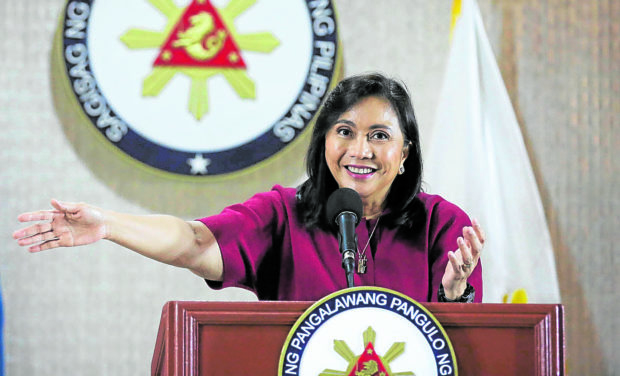MANILA, Philippines — It seems Vice President Leni Robredo—who has kept both supporters and rivals guessing on her political ambitions for 2022—intends to cut her decision close to the Oct. 8 deadline for the filing of certificates of candidacy (COC) for the 2022 elections.
With two weeks left on the clock and six possible presidential candidates on the table (Sen. Christopher “Bong” Go, Sen. Panfilo Lacson, Manila Mayor Francisco “Isko Moreno” Domagoso, Sen. Manny Pacquiao, Sen. Antonio Trillanes IV, and Ferdinand “Bongbong” Marcos Jr.), Robredo on Sunday said she remained committed to pursuing unification talks among the other candidates to pave the most favorable path to victory for the opposition.
“It’s not like I have a choice but to decide before Oct. 8,” Robredo said in her weekly radio show. “But for me, I still have two weeks. I’m going to see whether there’s still hope for everyone to band together.”
For the past months, Robredo has been in talks with other presidential candidates in hopes of finding common ground with the other contenders seeking to challenge the administration candidate.
She believes that the only way for the opposition to win was to field only one candidate, to avoid splitting the vote.
‘There is still hope’
But three of the politicians that opposition slate 1Sambayan had approached—Lacson, Pacquiao and Domagoso—already announced their own intention to run for the presidency.
But for Robredo, “until and unless they have already filed [their COCs], there is still hope.”
“For me, as long as we unite or the more that we reduce the number of people gunning for the presidency, the better,” she said. “And that is why I don’t plan on rushing myself, because there is still hope.”
For the past weeks, several grassroots groups have come together to urge Robredo to decide now and run against President Duterte’s anointed successor.
Robredo also got candid about her motivations to run for the presidency, if ever: To block the path of the Marcoses from returning to power, and to “stop the kind of governance we’re seeing now to repeat itself for another six years.” INQ



